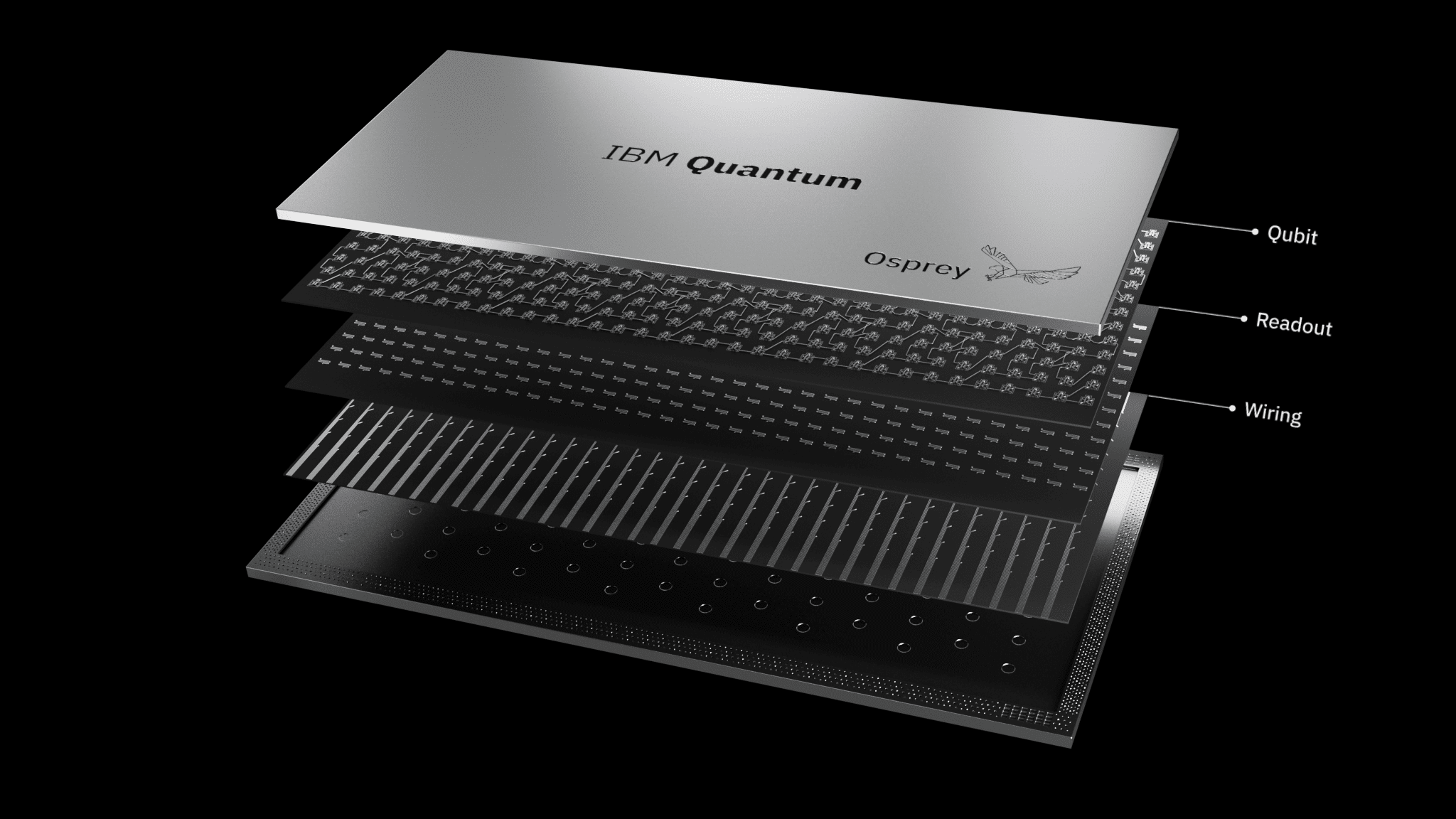The company also announced at the "Quantum Summit" a new quantum software - Qiskit Runtime - which handles error correction and mitigating background noise, which hinders the quantum processors from operating and providing reliable results

IBM today opened the IBM Quantum Summit 2022 with the announcement of a series of developments in the field of quantum hardware and software, and a first-of-its-kind outline for the development of a quantum supercomputer.
The most prominent announcement at the event was the IBM Osprey - a quantum processor with 433 qubits. The IBM Osprey has the largest qubit count of any IBM quantum processor to date – more than three times the 127 qubits in the IBM Eagle processor, unveiled in 2021. The IBM Osprey has the potential to run complex quantum calculations that are far beyond the computational capacity of any classical computer in existence today. By comparison, the number of bits (classical bits) that would be required to represent a state on an IBM Osprey processor far exceeds the total number of atoms in the known universe.
IBM Also provided an update on the quantum computing system IBM Quantum System Two - the next generation of active quantum computing systems. System Two is a system designed to be modular and flexible, by connecting a large number of quantum processors into one system through communication components. This system is intended to be operational by the end of 2023 and will form the infrastructure for building quantum supercomputers, which also use hybrid cloud middleware to seamlessly combine quantum computing and classical computing tasks. IBM has so far provided several quantum computing systems of the IBM Quantum System One model to laboratories and research institutes around the world.
Error correction and noise reduction
Another breakthrough presented at the summit is that of a new quantum software - Qiskit Runtime - which handles error correction and mitigating background noise, which hinders the quantum processors from operating and providing reliable results. The software allows researchers to choose between the speed of performing quantum calculations and reducing errors in performing calculations, using a simple API interface. The fact that researchers will be able to convert speed into error reduction in a simple way will facilitate the integration of quantum computing into research activities and accelerate the development of applications for the quantum computing era.
Also presented at the summit was a collaboration between IBM and the communications company Vodafone in the field of information security for the quantum era. The most common encryption today is based on the RSA method, which a classical computer would have a very hard time cracking but a quantum computer is potentially capable of cracking easily. The fear is that in an era where quantum computers will be more powerful and accessible, there will be a need for encryption that will also be immune to being cracked by a quantum computer. The collaboration will examine how IBM's advanced cryptographic methods, which are also immune to being cracked by quantum computing, can be applied across Vodafone's technology infrastructure.
IBM also announced the joining of the German corporation Bosch (Bosch) to the IBM Quantum Network - a network of companies, organizations and research institutes that gain access to IBM's most powerful quantum computers for the purpose of research and development of innovative materials and technologies. Also joining the network are the French bank Crédit Mutuel Alliance Fédérale, which will investigate applications of quantum computing in financial services, and the Swiss innovation campus uptownBasel, which will investigate solutions for developing skills and promoting innovation projects in the quantum field. The network currently includes more than 200 organizations - and more than 450 thousand users - with access to the largest array in the world of more than 20 quantum computers that are accessible to partners through the cloud.
"The IBM Quantum Summit marks a defining moment in the evolution of the global quantum computing sector as we move forward along our quantum roadmap," said Jay Giambatta, VP of IBM Quantum. "As we continue to increase the scope of our quantum systems and make them simpler to use, we will continue to see adoption and growth of the quantum industry."
More of the topic in Hayadan:
